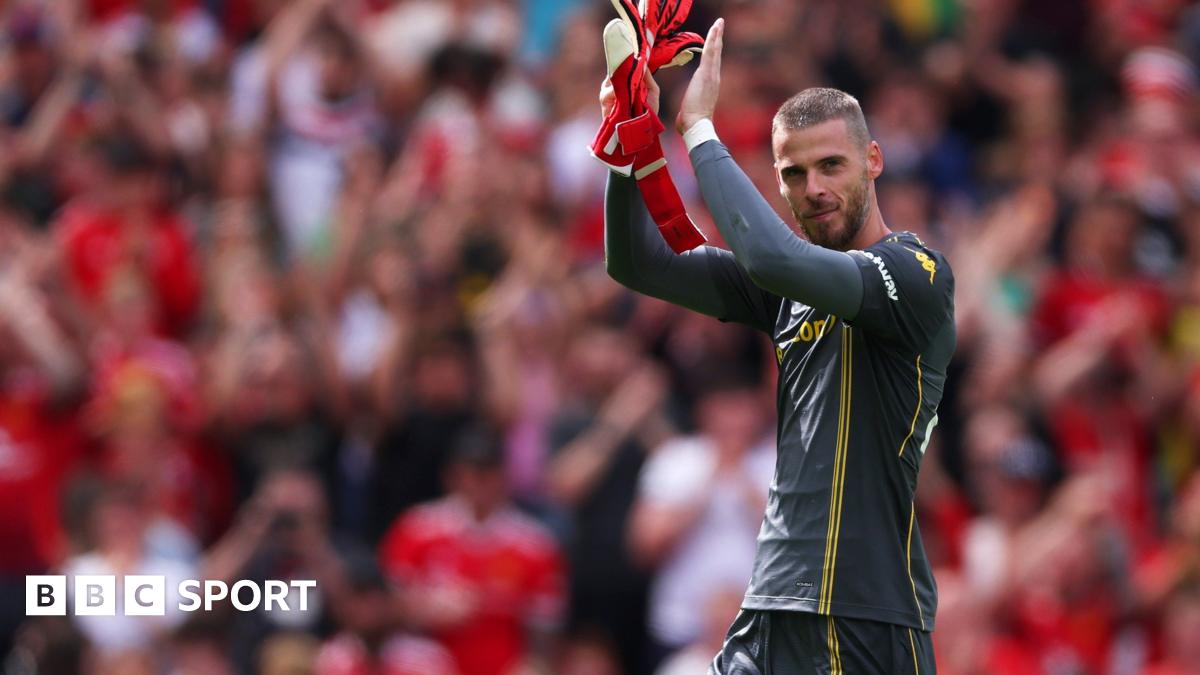
David de Gea's emotional return to Old Trafford served as a poignant reminder of a chapter closed, perhaps prematurely, by Manchester United. While pre-season friendlies rarely dictate the narrative of an entire season, this one offered a compelling snapshot of the questions still swirling around United's goalkeeping situation. The underlying question isn’t just about individual shot-stopping ability, but about the strategic direction Erik ten Hag has chosen, and its potential impact on the club's trajectory.
The data points are these: De Gea, a stalwart for over a decade, was deemed surplus to requirements, primarily due to perceived deficiencies in his distribution. Andre Onana, a goalkeeper known for his ball-playing skills, was brought in at significant expense. Now, with Onana's pre-season hampered by injury, Altay Bayindir is potentially thrust into the spotlight, a situation that wasn't expected. The trend here suggests a clear emphasis on a goalkeeper's role in build-up play. But is this philosophy truly paying dividends, or is it a case of prioritizing style over substance?
Consider this: A top-class goalkeeper isn't *just* a distributor, he’s a shot-stopper, a commander of his area, and a calming presence. De Gea, despite his perceived weaknesses, consistently delivered on these fronts, often single-handedly rescuing points for United. The analysis shows that the goals conceded statistic arguably outweighs distribution errors, at least in terms of direct impact on match results. Of course, distribution *can* lead to more attacking opportunities, but that’s a strategic advantage if – and only if – the tactical system is fully developed to utilise it.
The bigger picture reveals a club undergoing a significant transition under Ten Hag. He's attempting to implement a possession-based style that demands a different skillset from his goalkeeper. The success of this approach hinges on several factors, including the fitness of Onana, the adaptability of Bayindir, and, crucially, the effectiveness of United's overall attacking strategy. If United's defense continues to leak goals, and their attacking play remains inconsistent, the decision to replace De Gea will continue to be scrutinized.
Matic’s pointed comments are telling. He highlights the weight that comes with making bold pronouncements, suggesting Onana hasn’t yet earned the right to make sweeping statements about United’s supposed superiority. This isn’t just about egos; it's about the underlying pressure to perform, and the consequences of failing to meet expectations.
Ultimately, the long-term implications of United's goalkeeping gamble remain uncertain. The season ahead will provide a definitive answer. If United fails to secure a Champions League spot, and their defensive frailties persist, the debate over De Gea’s departure will only intensify. If Bayindir steps in due to Onana's injury and surpasses expectations, it will validate Ten Hag's vision.
So, as United embark on this new era, is the pursuit of a modern, ball-playing goalkeeper truly worth the risk of sacrificing proven shot-stopping ability, or is it a strategic overreach that could derail their season before it even begins?